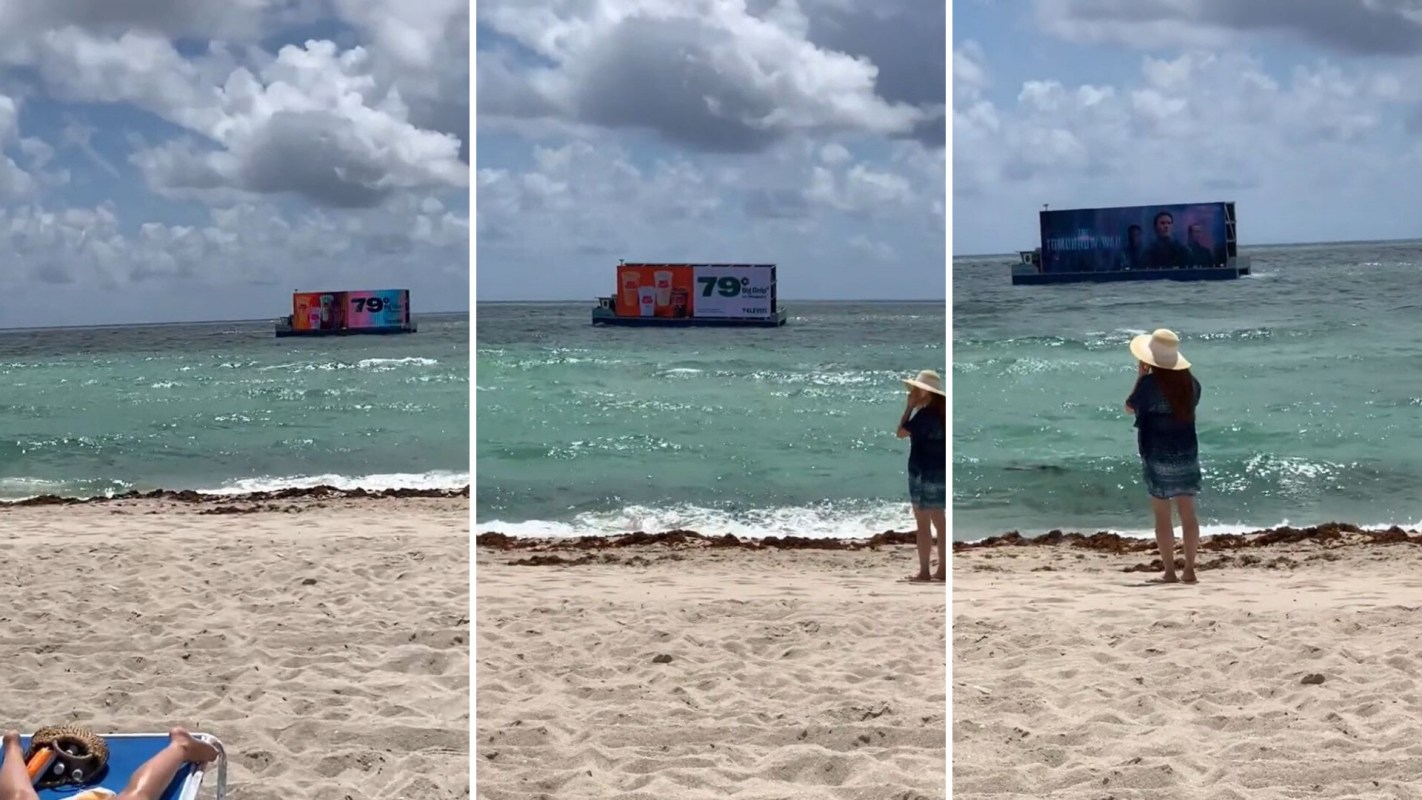A boat towing a large digital billboard past beachgoers was met with shock and disgust.
"Only in Miami do you see an advertisement at the beach on a boat," TikTok user RadicalMusica (@RadicalMusica) said in his video of the boat passing the beach.
In the clip, you can see an advertisement for 7-Eleven's Big Gulp drinks plastered on the enormous screen, with brightly illuminated letters easily readable from the beach. As the 7-Eleven ad blinks out, it's immediately followed by a poster for the movie "The Tomorrow War."
@radicalmusica #onlyinmiami #miamibeach #miamiviral #miamidade #miamiratchet #miamiads #southbeach #floridaviral #miamisummer #tiktokviral #viraltrend ♬ original sound - rad1musica
The clip, which is from 2021, provoked immediate anger and frustration.
"This needs to be illegal, it's literally sad," one person wrote.
"This really makes me sick to my stomach," another person commented on Reddit, where the video was re-posted in the subreddit r/ABoringDystopia.
"I genuinely cannot describe the level of sorrow and grief that this has brought me," another said on TikTok.
According to Scenic America, there are at least two million billboards in the United States. And unfortunately, this is not the first example of advertising, billboards, and signage cropping up where it is least wanted — such as in the middle of a field or on a beach.
And these billboards aren't just distracting or ugly — they affect residents. A home within 500 feet of a billboard typically sells for $30,000 less than a comparable home that is not near a billboard.
The pervasive nature of advertising also affects our mental health. The average person sees 10,000 ads per day, which has been shown to negatively impact our well-being. According to the Harvard Business Review, increased advertising in an area is significantly correlated with decreased happiness among residents.
Finally, it's harmful to the environment. Digital billboards use the equivalent of 11 homes worth of energy use.
And while a few states — Maine, Alaska, Vermont, and Hawai'i — have enacted no-billboard laws to keep their states entirely billboard-free, the overwhelming majority of states don't have any such regulations. However, certain cities and townships are working to pass laws to limit the construction of new billboards, the use of digital billboards, and more.
"We're so far beyond satire at this point," one person wrote grimly.
"This is like going to the park," another wrote, "and seeing the sky's been replaced with a billboard."
Join our free newsletter for cool news and cool tips that make it easy to help yourself while helping the planet.









